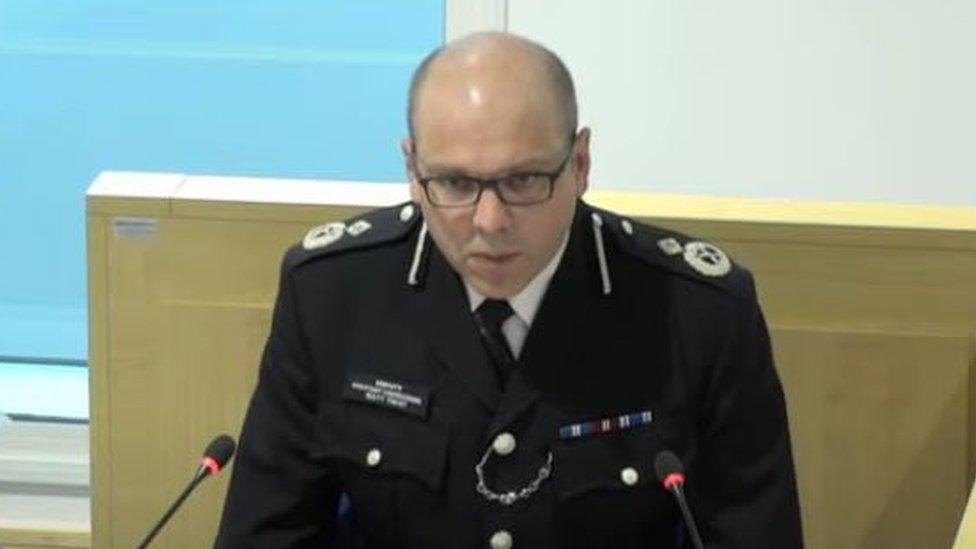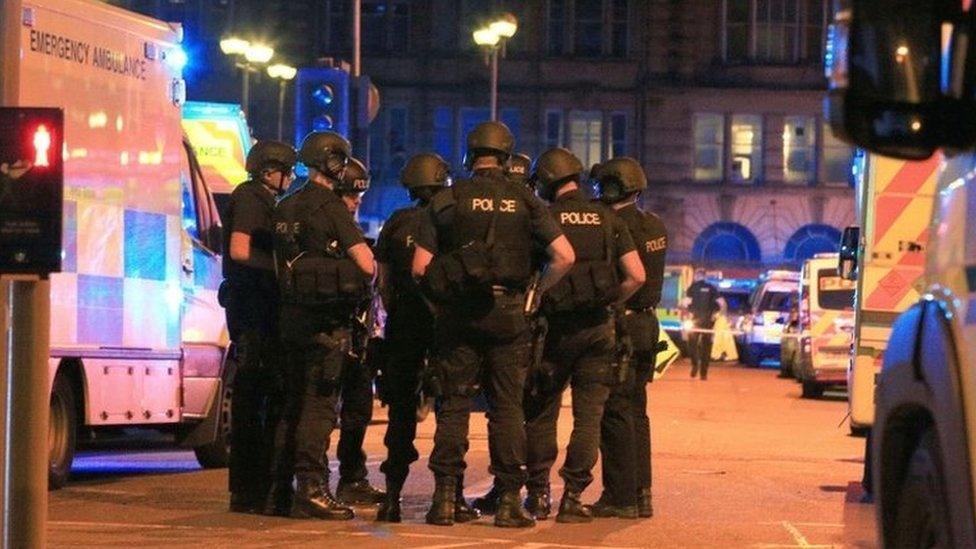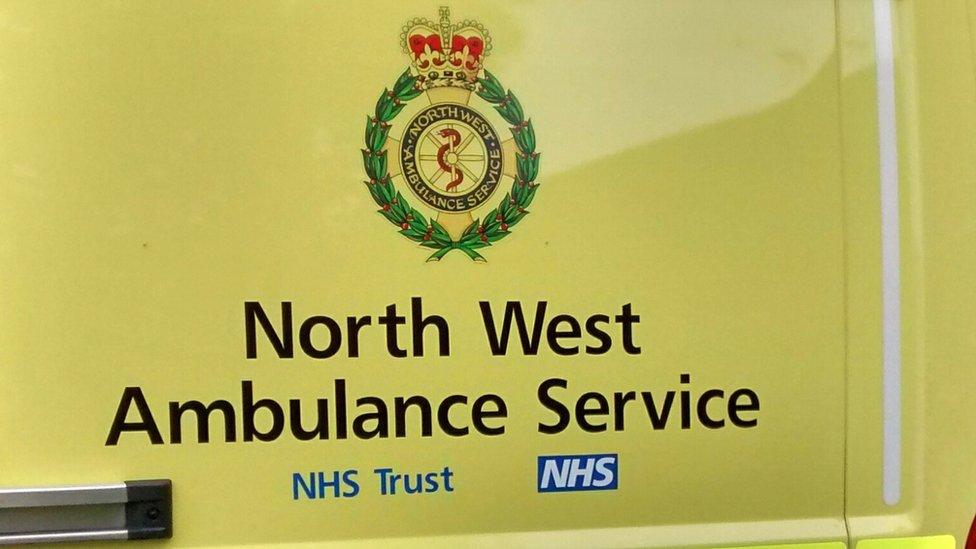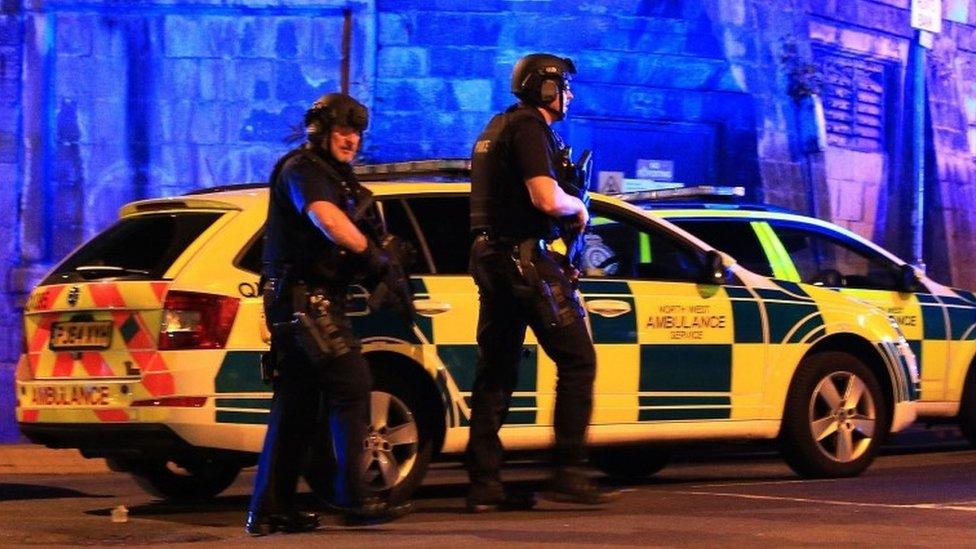Manchester Arena Inquiry: Medical response delays 'would not happen now'
- Published

Deputy Assistant Commissioner Matt Twist said updated policies would avoid a repeat of the delays seen in Manchester
Policy changes mean the delay in medics getting to the Manchester Arena attack casualties "would not happen now", the inquiry into the bombing has been told.
The Manchester Arena Inquiry has heard help was held up after the 2017 bombing because of fears of more attacks.
Counter Terrorism Policing Deputy Assistant Commissioner Matt Twist told a hearing policies now provided "a flexible tool" for quick deployment.
He said front-line PCs would also soon be trained in advanced first aid.
The inquiry into the bombing, which killed 22 people and injured hundreds more, has started looking into ways of shortening the "care gap", a term used to describe the inevitable delay in trained medical professionals getting to a major incident.
'Drop bags'
Mr Twist said new guidance would avoid a repeat of the hold-ups seen after the attack, as the changes meant "that should not" and "would not happen".
"From a personal view, if you are in a situation where there are either armed or unarmed officers or indeed members of the public providing first aid and emergency life support to victims, then that should be the moment for NHS staff and indeed fire (officers) to be moving forward and supporting that effort," he said.
He was asked if UK police would consider the idea of embedding civilian doctors with armed police units, which has been discussed at the inquiry.
"I am not certain that would be the most useful thing, but of course, we could consider it," he said.

Twenty-two people died in the arena bombing on 22 May 2017
The inquiry had previously heard that many of the first police officers on the scene at the arena said their basic first aid training was inadequate to deal with the catastrophic injuries they faced.
Mr Twist said front-line PCs would get advanced training in 2022, which would include instruction on how to apply tourniquets to serious wounds.
The inquiry also heard that many armed police units were now carrying first aid "drop bags" that could be left at the scene of an attack for use by initial responders.
The hearing was also told that there was currently no regulator checking that large public entertainment venues have proper medical and first aid services available.
The inquiry previously heard claims that first aid provision at the arena at the time of the attack was not up to standard.
Mark Norris from the Local Government Association told the court there was no regulator "as such and that leaves a gap in this particular area".
He said local councils often relied on the venues themselves when issuing a premises licence.
"They will require them to make provisions, for example, for first aid, but will not specify what skill levels you would need or how many people you would need," he said.
"They would expect that to be done by the event organiser themselves."
The inquiry continues.

Why not follow BBC North West on Facebook, external, Twitter, external and Instagram, external? You can also send story ideas to northwest.newsonline@bbc.co.uk
- Published12 January 2022

- Published29 December 2021

- Published15 December 2021

- Published14 December 2021
